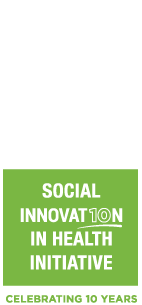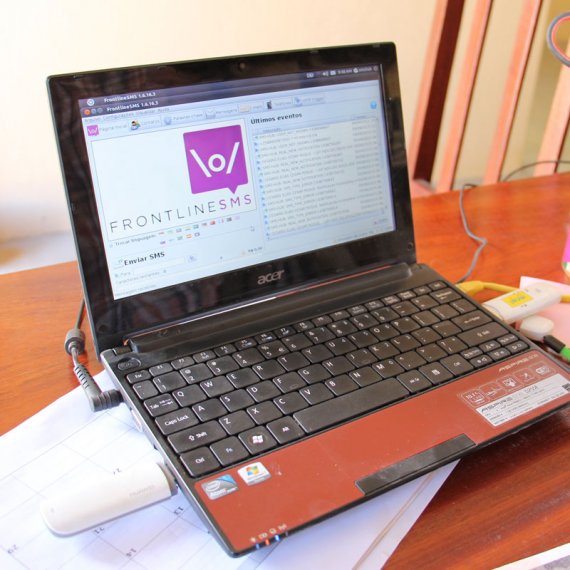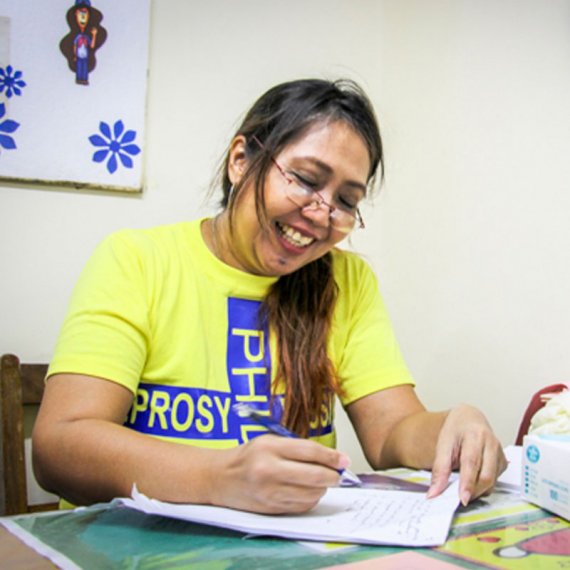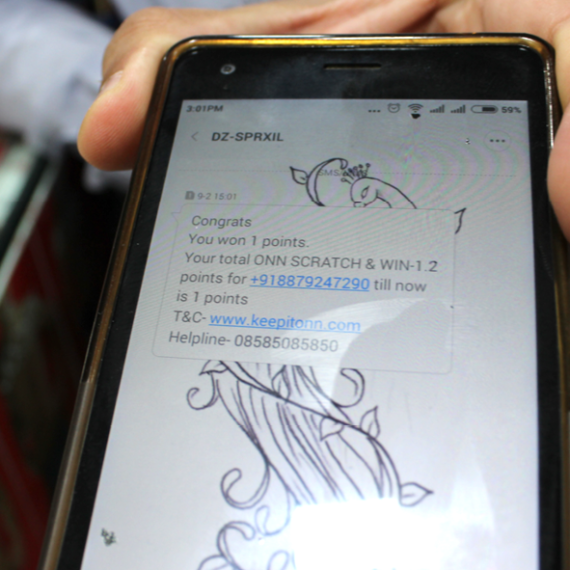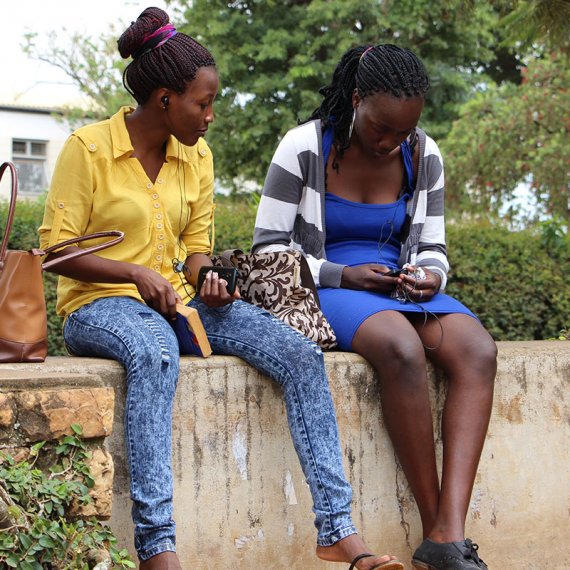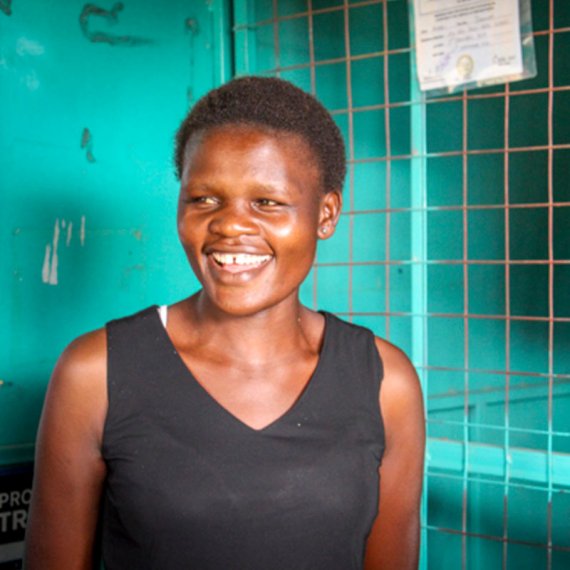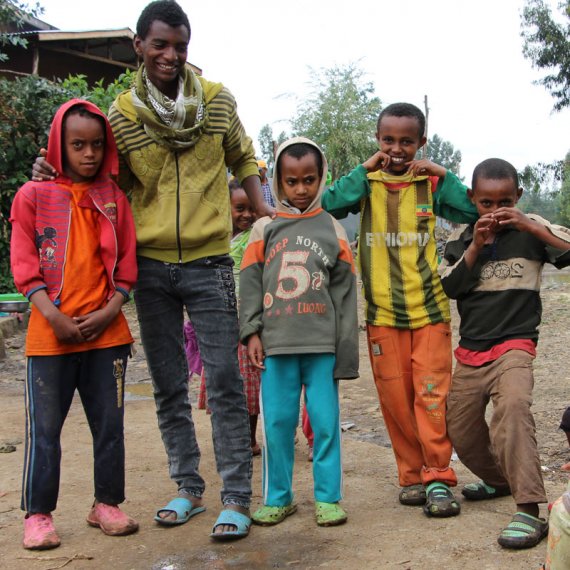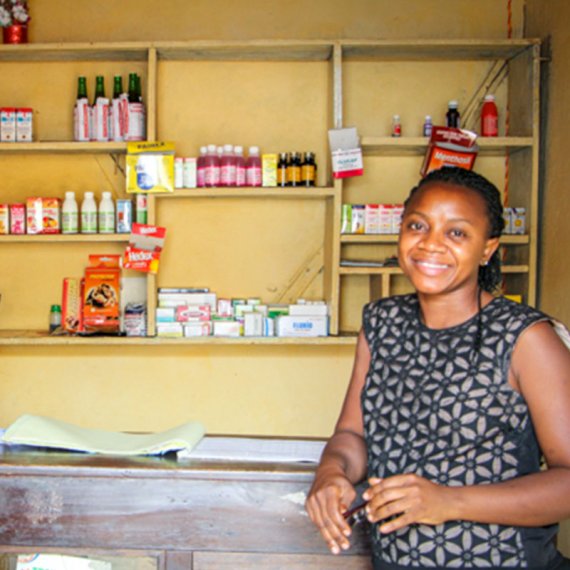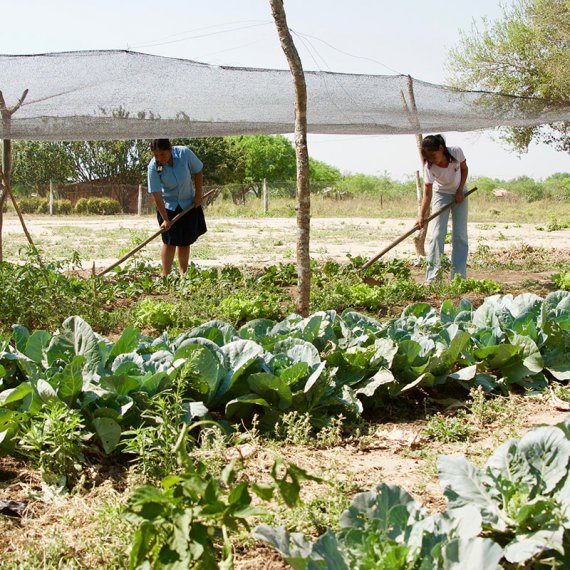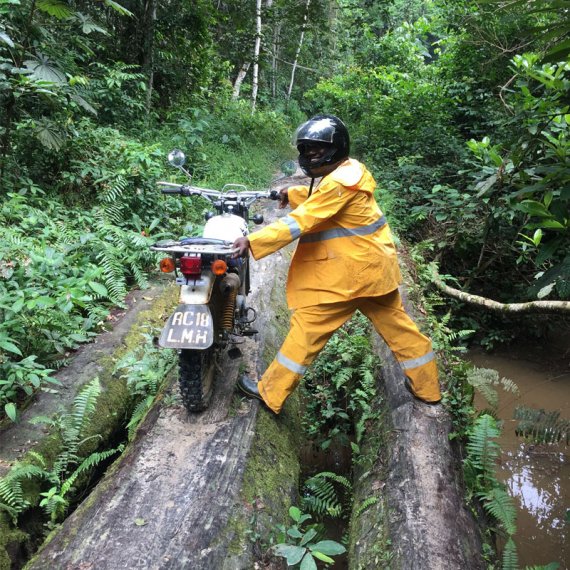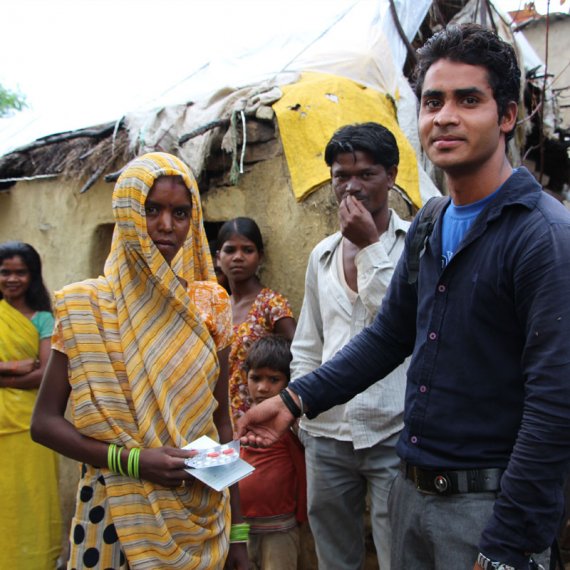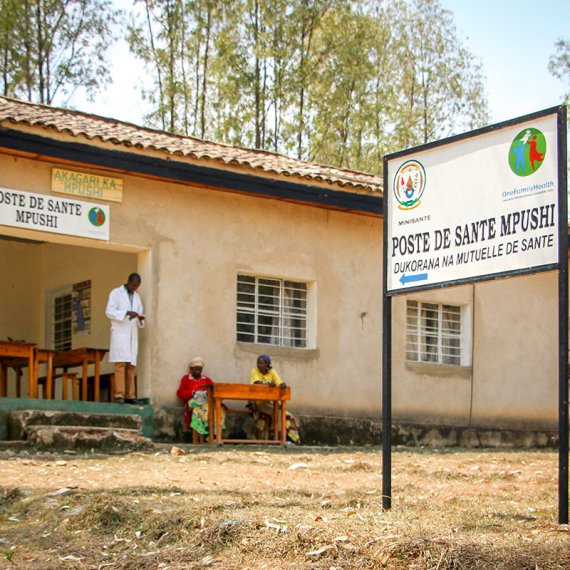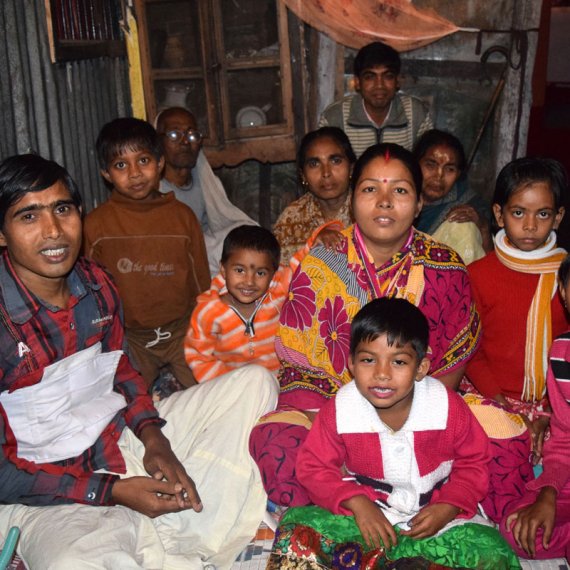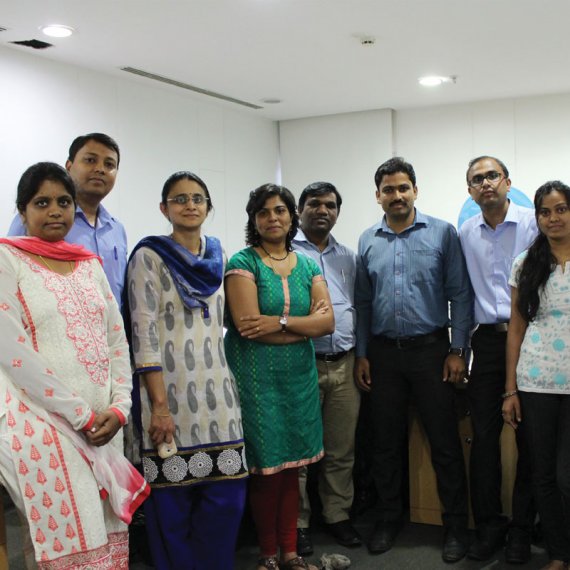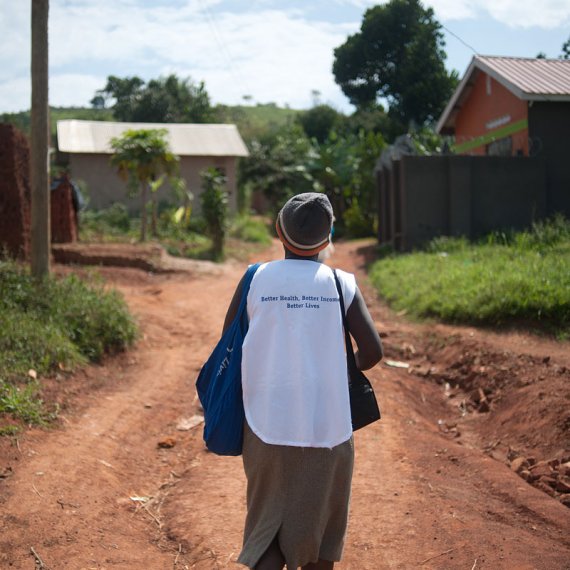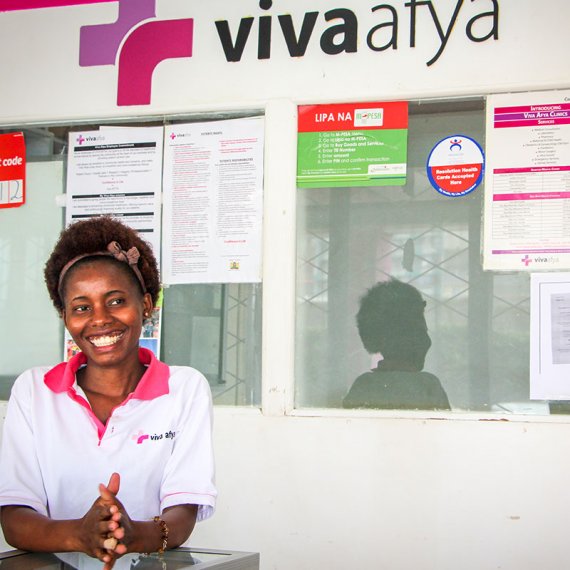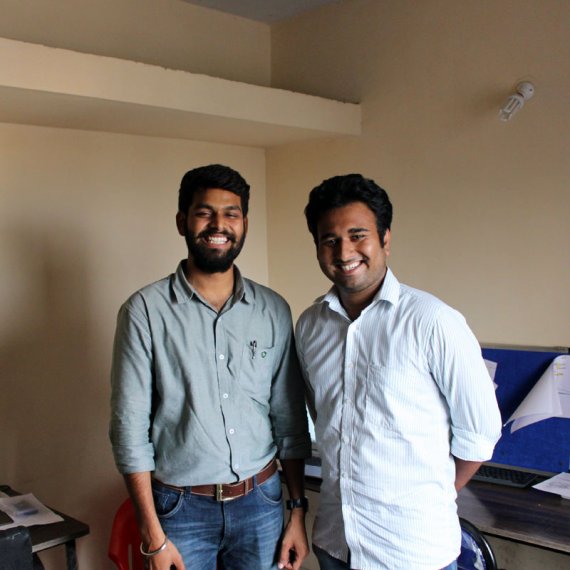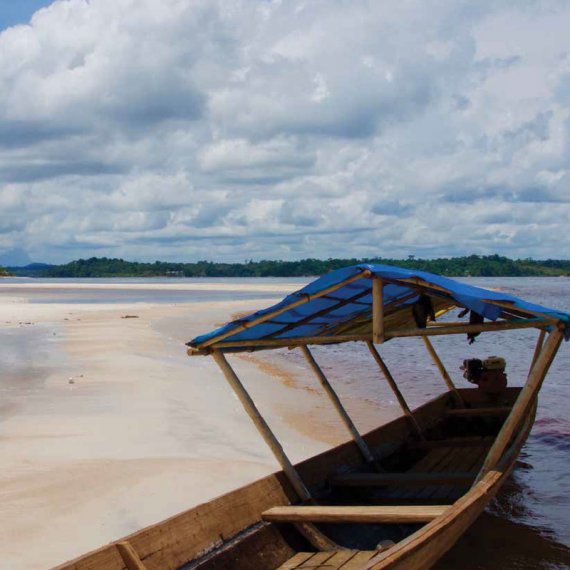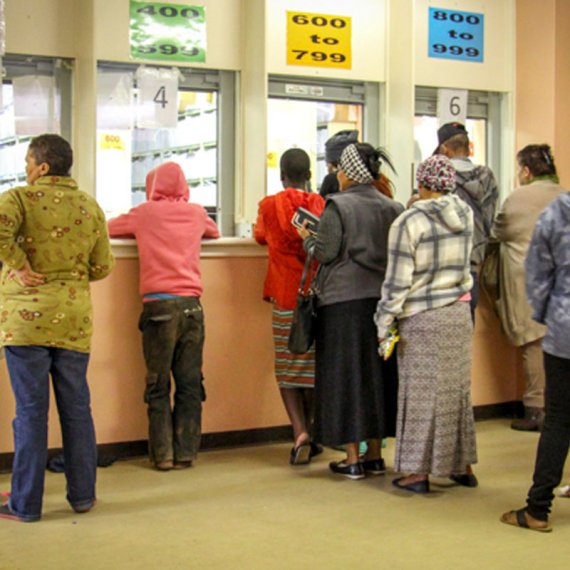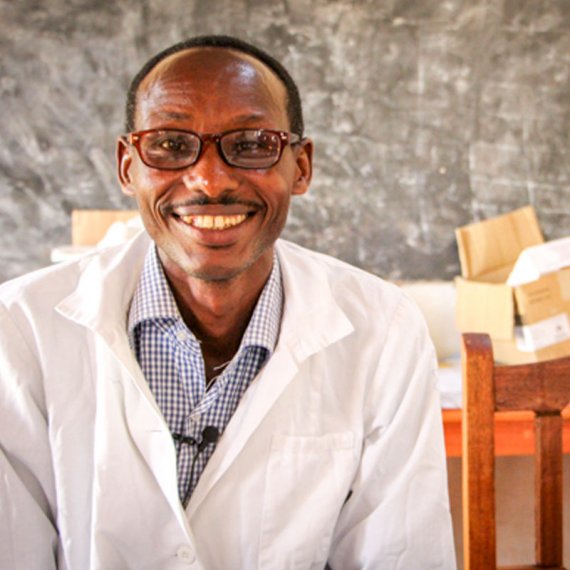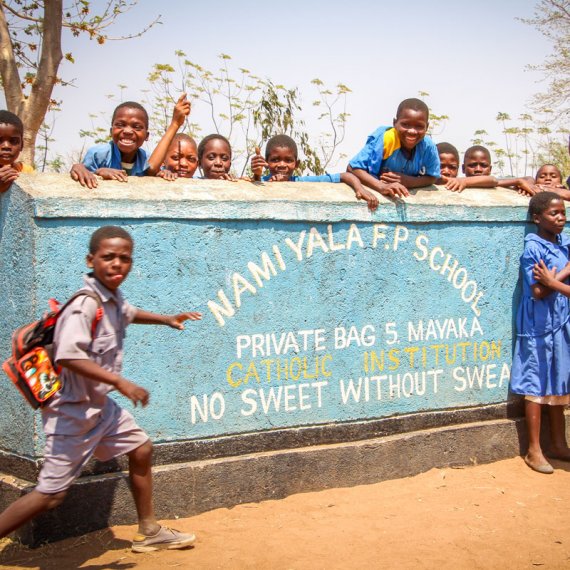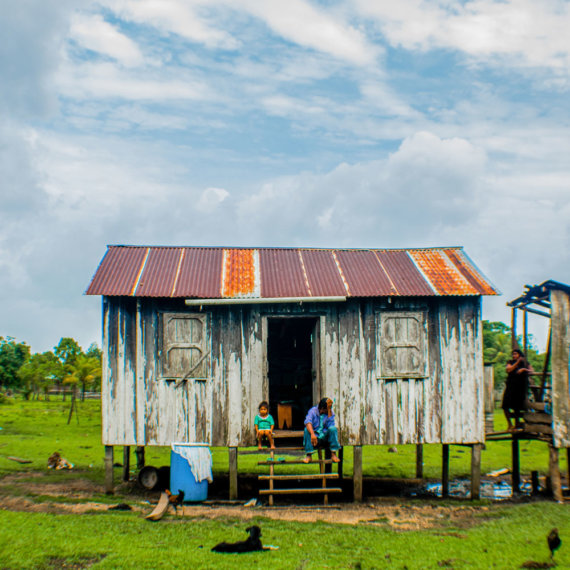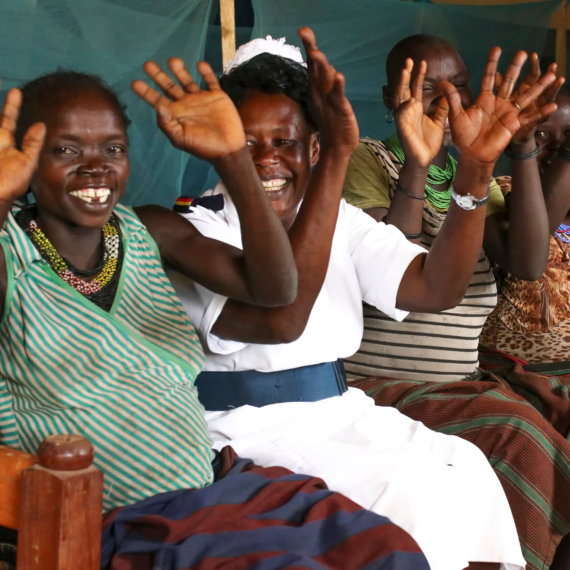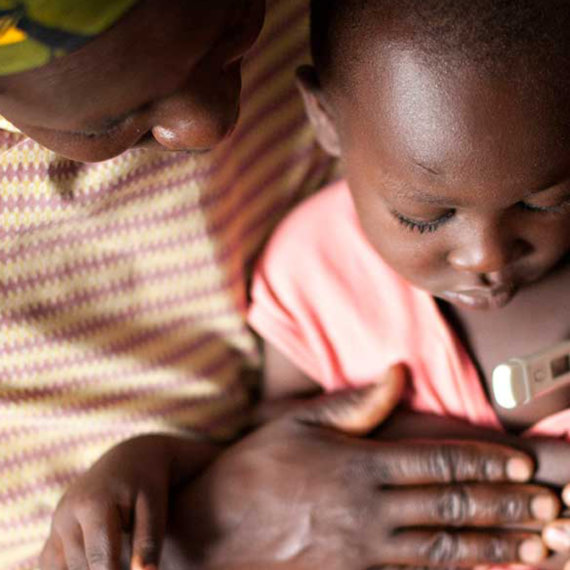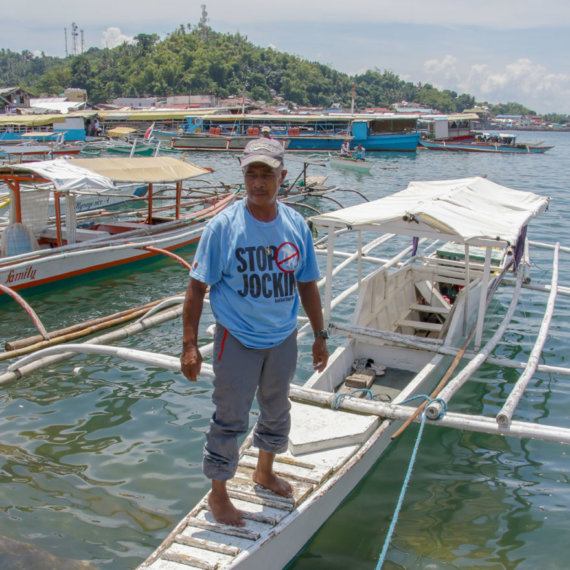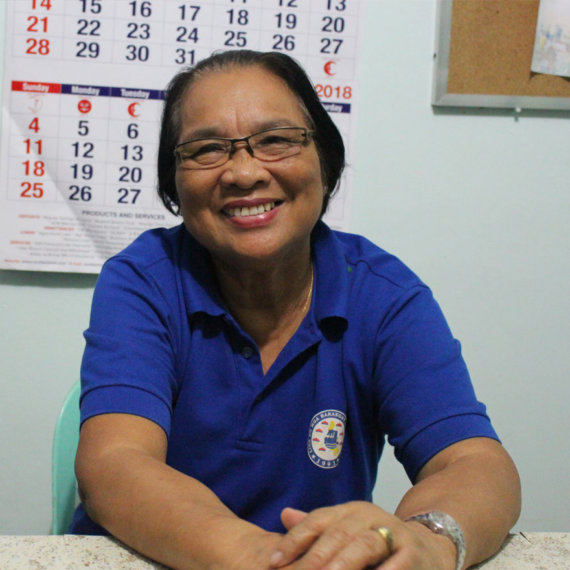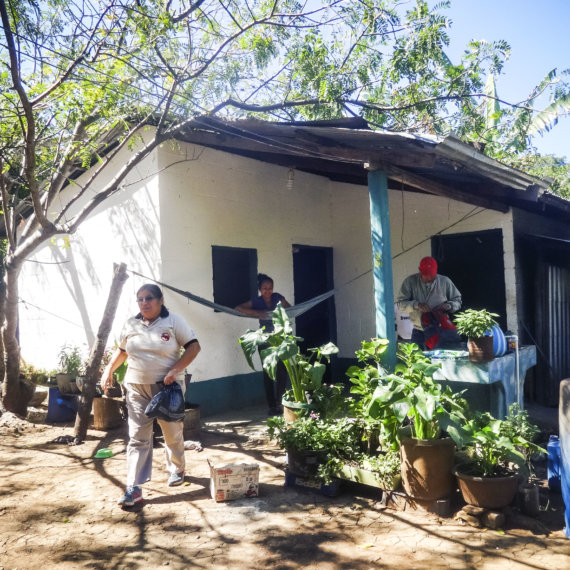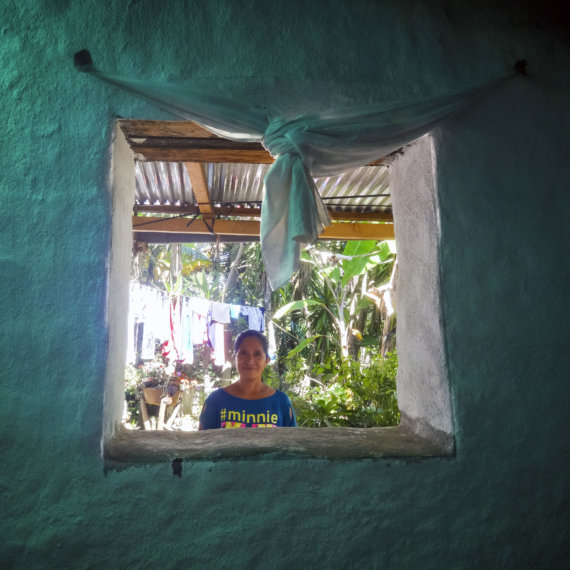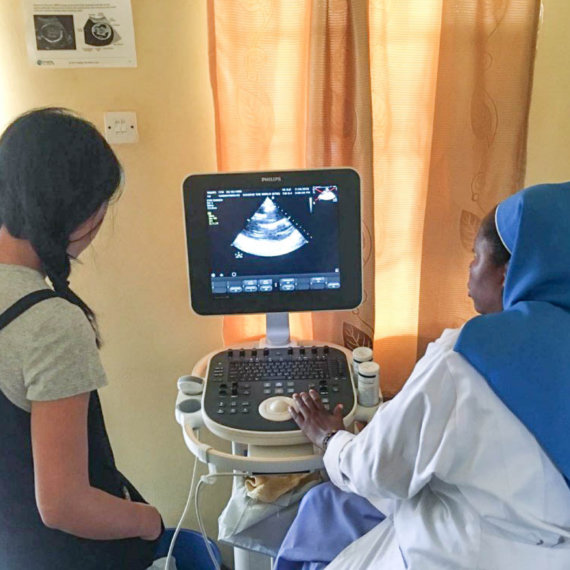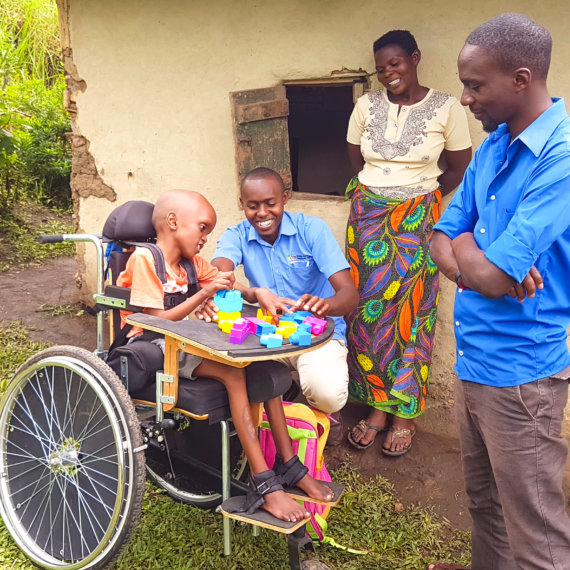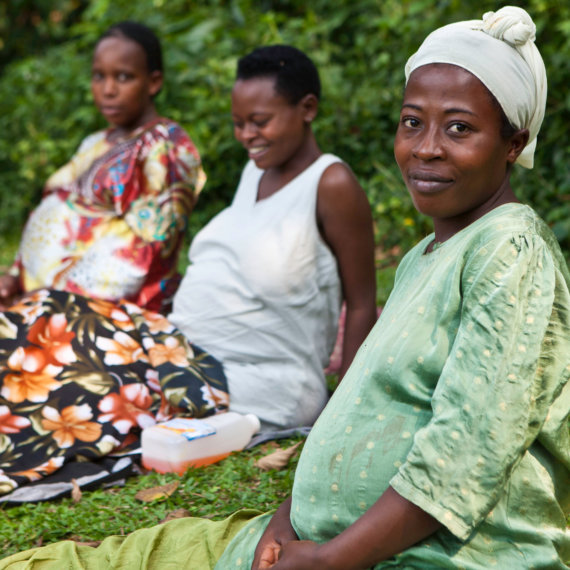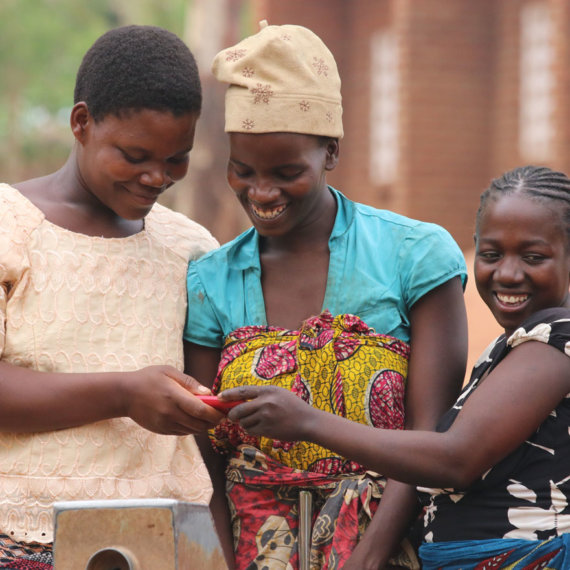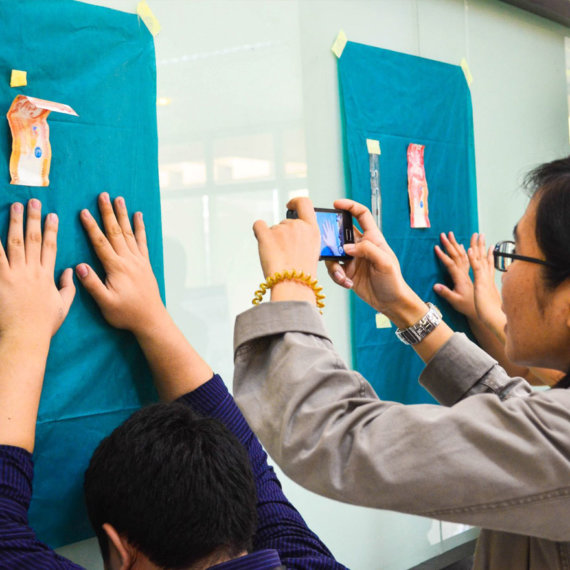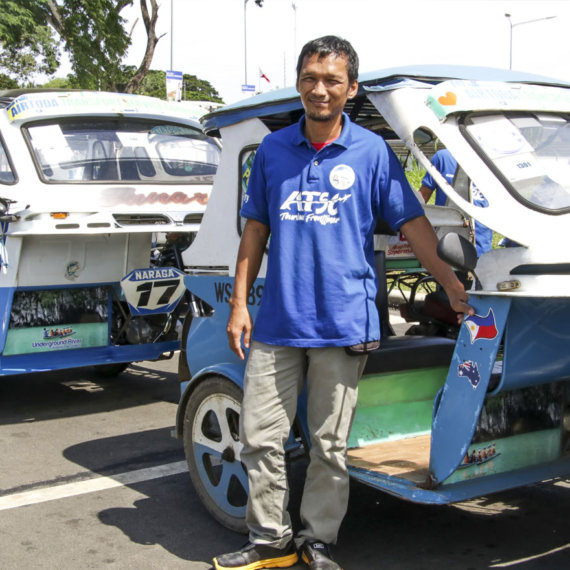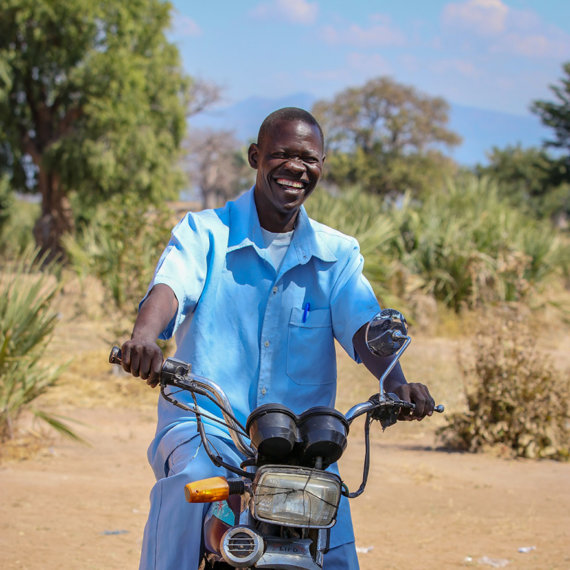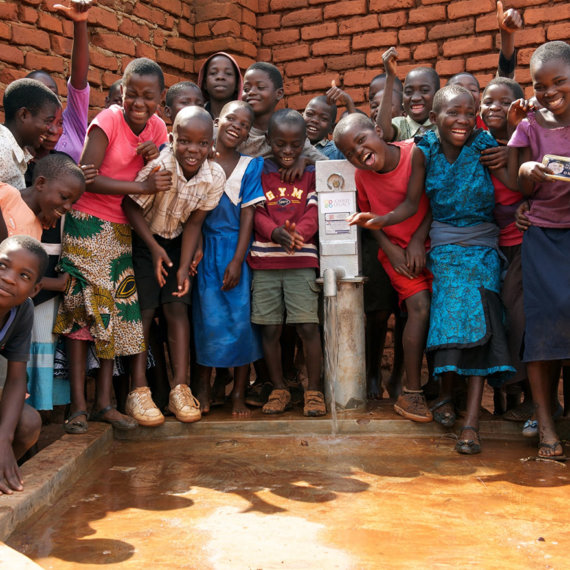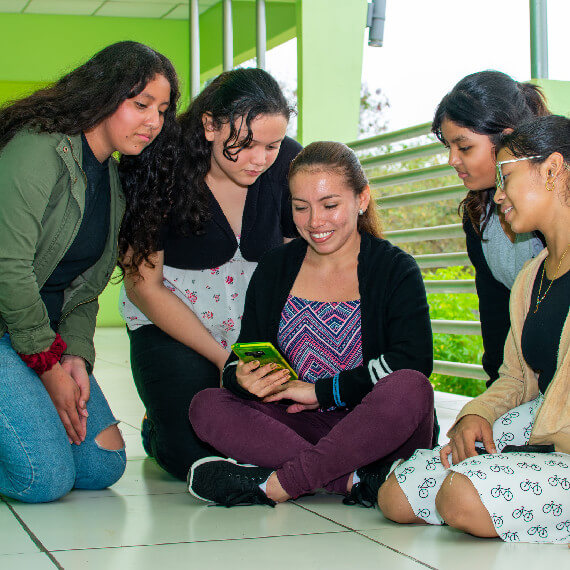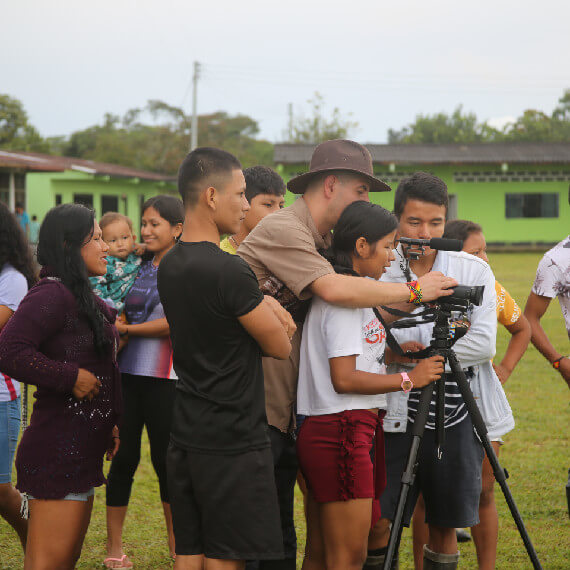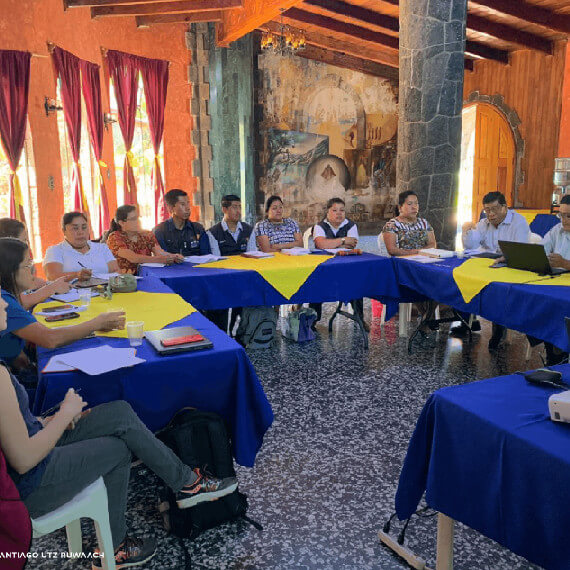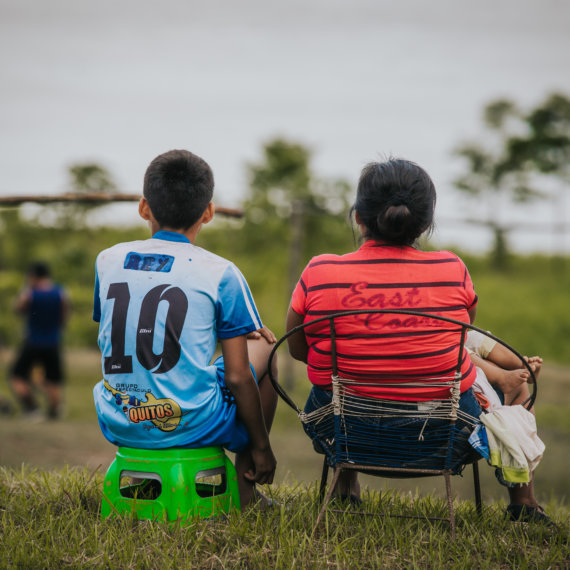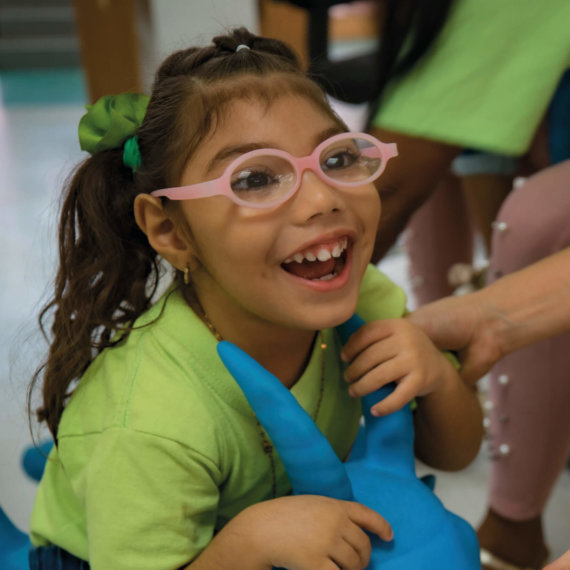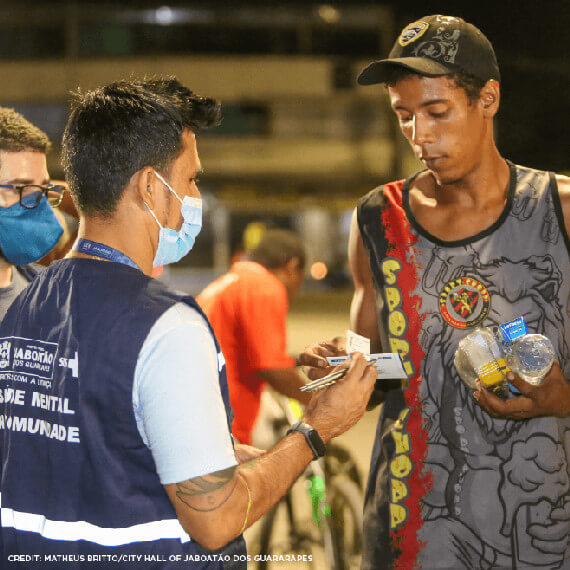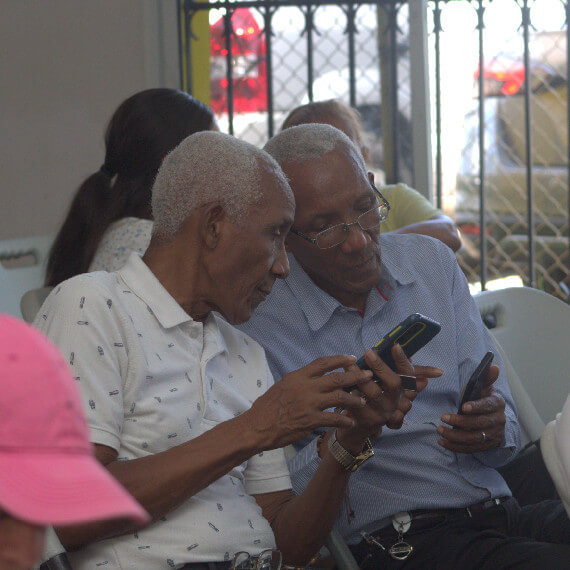MAMÁS DEL RÍO
This initiative works in rural communities in Peru to reduce maternal and child mortality by empowering community agents through the use of ICTs.
CONTINENT
LATIN AMERICA
Country
PERU & COLOMBIA
Location
Loreto, Peru Amazonas and Putumayo, Colombia
Founding year
2015
Organizational structure
University, NGO
Health focus
Maternal and Child Health
Sexual and Reproductive Health
Community Empowerment
Actors Involved
University, State, Community
Programme Focus
Training/Education, Community Mobilisation, Technology, Service Delivery
Health System Function
Information, Human Resources for Health
CHALLENGE
Maternal and neonatal deaths are a serious health problem in Latin America and the Caribbean, despite the fact that many of their causes are preventable. According to the 2010-2012 Demographic and Family Health Survey, Loreto was the department with the second highest maternal and infant mortality rate in the country, averaging 18.7 per 1,000 live births. Likewise, a study in Nauta and Parinari, Loreto, reports a neonatal mortality rate of 31/1,000 live births, with infection being the most frequent cause.
Among the main barriers are difficult access to health, lack of culturally appropriate delivery care by health facilities, and unfavorable attitudes in seeking medical assistance. In addition, a census conducted in three districts of Loreto suggests inadequate hygiene conditions and gaps in newborn care coverage, both at home and in health facilities.
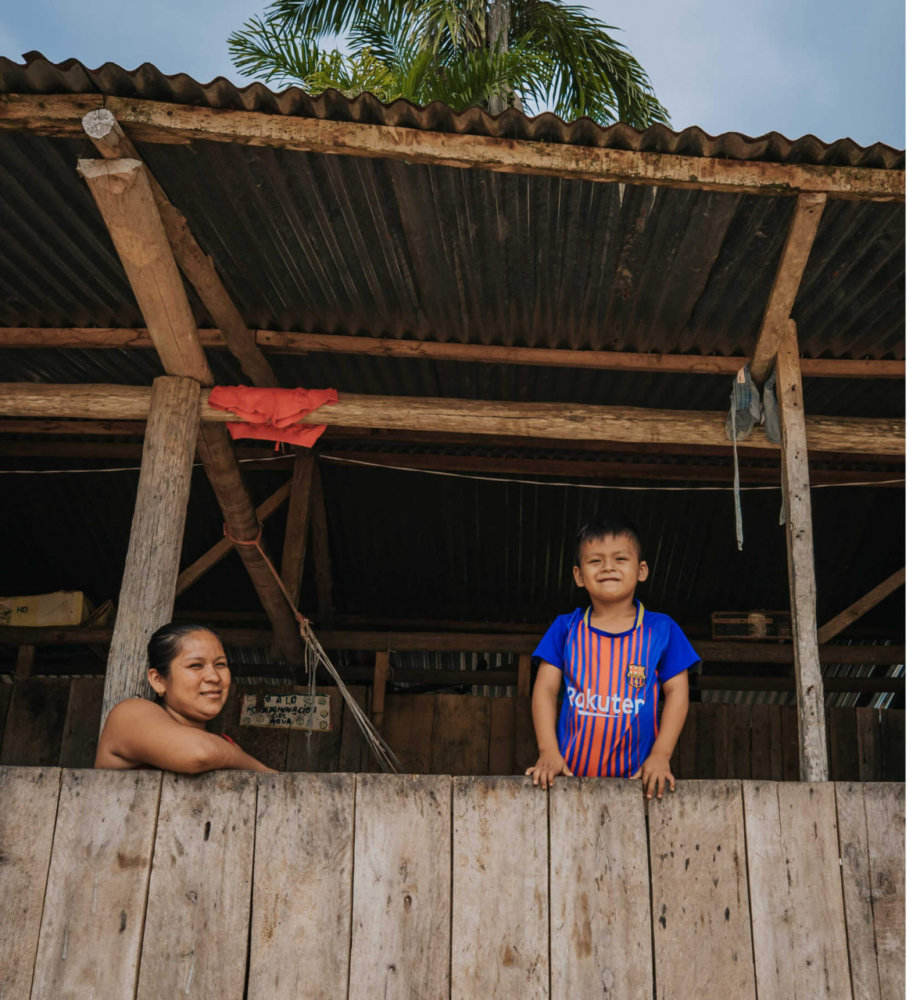
“Before at the health centre they made us come back, but now that they know more about the programme they give us priority […] we the Community Health workers can talk and the mothers are happy. With this program they now give us the possibility to choose how we want the baby to be born […], they already treat us well and now, as community agents, they give you recognition and know that through us they can know how many pregnant women they have in the communities”.
– Community health worker, Puerto Prado, Loreto
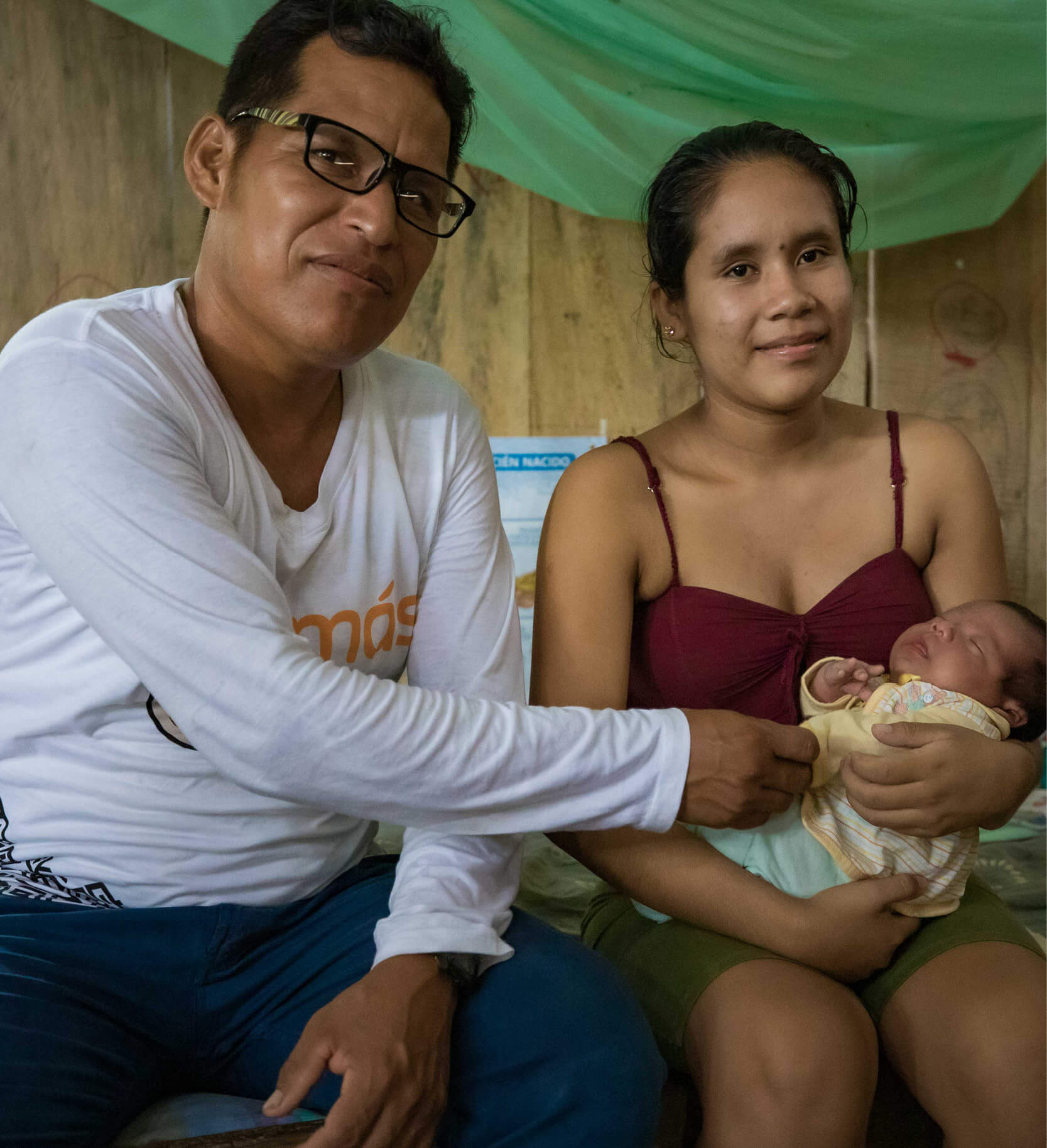
INTERVENTION
Mamás del Río is an initiative developed and implemented by multidisciplinary team with the direction of Magaly Blas, professor and researcher at the Universidad Peruana Cayetano Heredia. The main objective of this initiative is to improve the health of mothers and newborns in the Loreto Region of Peru.
To this end, they provide training to midwives and Community Health Agents to know how to detect emergency signs of pregnancy, childbirth, postpartum and newborn, and prepare for home delivery, in case institutional delivery is not feasible. Home education visits are made, 3 prenatal and 3 postnatal visits, using tablets with the CommCare application that allows data to be uploaded from each visit. In the first visits, institutional delivery, prenatal controls, immediate attention and general care of the newborn are promoted. In the last three, the newborn’s health is monitored and additional care is explained.
The Community Health Agents educates through tablets and educational materials to improve and maximize the impact on newborn care during and after visits and three educational booklets are provided to mothers, containing recommendations that reinforce key newborn care practices.
“Mama River has taught us a lot about things we didn’t know before, about the risks of pregnancy, about a bad birth (abortion). The community health workers and midwives visit us and give us talks, they teach us that the baby must be breastfed at birth so that it takes the colostrum and now the midwives cut the cord with a scalpel. Everything has changed … we can say that Mama River have taught us things that improve health in the community”.
– Participating mother, Bella Union, Loreto
IMPACT
In the first implementation, Mamás del Río covered a total of 799 women of reproductive age. Following the 18-month pilot study, the percentage of women receiving pretenatal care in the first trimester increased from 38 per cent to 63 per cent, institutional delivery assistance doubled from 16 per cent to 37 per cent, reducing complications and providing timely response to potential maternal and perinatal emergencies, and the percentage of mothers requesting identification of their newborns within the first 30 days of life increased from 2 per cent to 30 per cent.
Training of Community Health Agents has allowed for early detection of emergency signs in pregnant women in their community, which lowers the mortality rate. On the other hand, the work of training and sensitizing midwives has allowed new and better care of the newborn to be installed in non-institutional births.
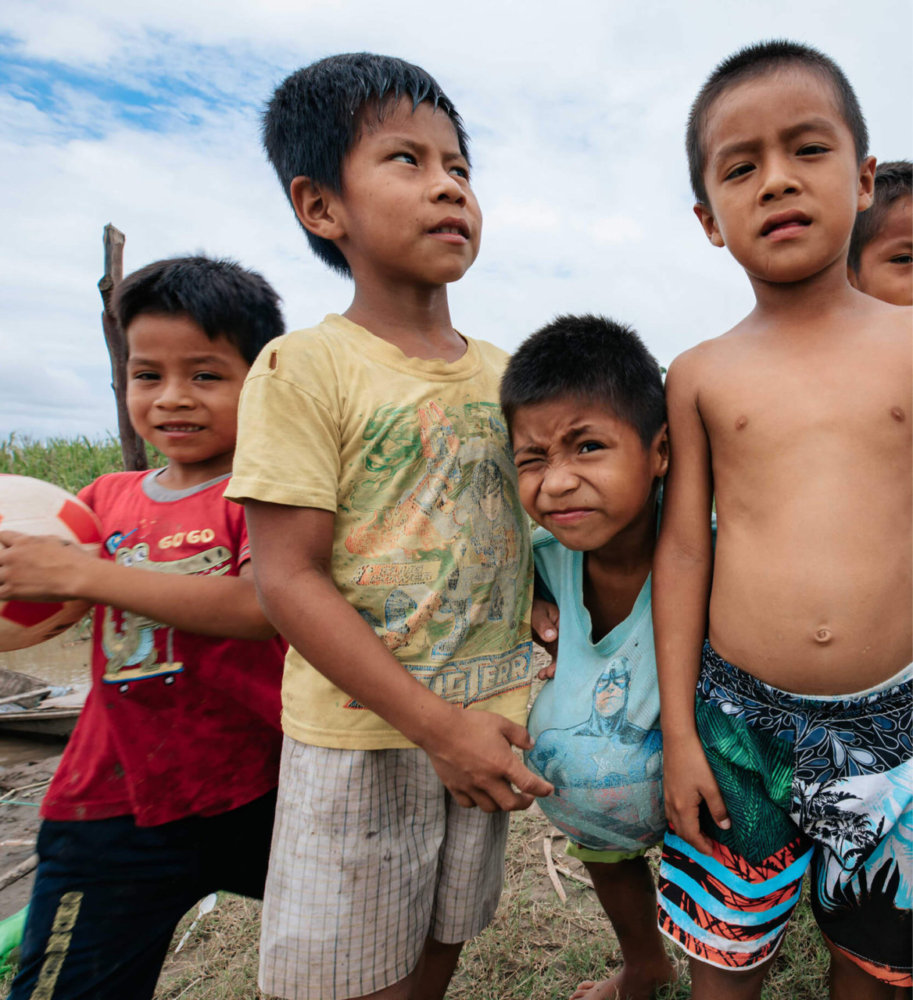
“I was a mom and I said wow, if I have all these vulnerabilities and feelings like mom, even though I have attention here in Lima and also gave birth in the US to my two daughters, it was amazing to see moms in the rural areas of the [Peruvian Amazon] river giving birth at home, with their midwife or with their partner or mom and sometimes alone, with all the risk of dying! So that was when […] I said, no, now I’m going to do something different”.
– Innovator, Lima
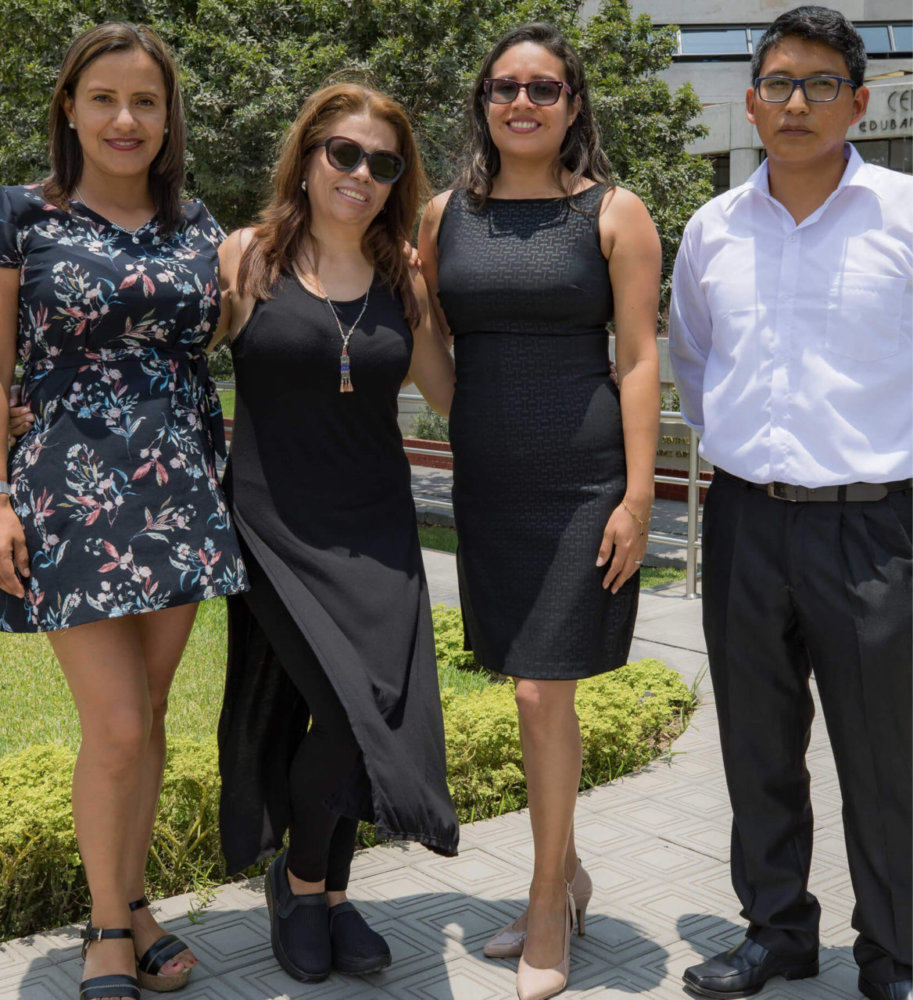
CASE INSIGHTS
![]() This initiative has definitely demonstrated the importance of intersectorality for the sustainability of the programme and to have a more far-reaching impact on communities, so it integrates the Ministry of Health, the Ministry of Development and Social Inclusion, the Ministry of Education, the private sector and the community.
This initiative has definitely demonstrated the importance of intersectorality for the sustainability of the programme and to have a more far-reaching impact on communities, so it integrates the Ministry of Health, the Ministry of Development and Social Inclusion, the Ministry of Education, the private sector and the community.
![]() These linkages between the community and the health sector have been another key learning experience because they create bonds of trust, mediated by Community Health Agents, and bridge some cultural gaps related to midwifery practice. The active participation of communities has also been fundamental, because it generates true empowerment and changes habits and hygiene conditions that contribute to the improvement of their health.
These linkages between the community and the health sector have been another key learning experience because they create bonds of trust, mediated by Community Health Agents, and bridge some cultural gaps related to midwifery practice. The active participation of communities has also been fundamental, because it generates true empowerment and changes habits and hygiene conditions that contribute to the improvement of their health.
![]() The use of mHealth and the educational manuals as pedagogical tools contributes to the transformation of communities with limited access to health services into health, because not only is a solution provided, but pregnant women, mothers and families are also educated.
The use of mHealth and the educational manuals as pedagogical tools contributes to the transformation of communities with limited access to health services into health, because not only is a solution provided, but pregnant women, mothers and families are also educated.
CASE UPDATE 2023
![]() Mamás del Río initially started their pilot in 13 communities in the Loreto District in Peru and has since grown to include 84 communities located along 350 kilometers of river in the Amazon.
Mamás del Río initially started their pilot in 13 communities in the Loreto District in Peru and has since grown to include 84 communities located along 350 kilometers of river in the Amazon.
![]() A 3-year program evaluation has been conducted and found that the project improved almost all essential newborn care outcomes, specifically those related to thermal care, cord care, and breastfeeding. In addition, Mamás del Río increased hospital delivery.
A 3-year program evaluation has been conducted and found that the project improved almost all essential newborn care outcomes, specifically those related to thermal care, cord care, and breastfeeding. In addition, Mamás del Río increased hospital delivery.
![]() In 2020, with the support of the Ministries of External Affairs of Peru and Colombia and the Inter-American Development Bank the project was replicated as Mamas de la Frontera – expanding the program along the border of Peru and Colombia in 30 communities.
In 2020, with the support of the Ministries of External Affairs of Peru and Colombia and the Inter-American Development Bank the project was replicated as Mamas de la Frontera – expanding the program along the border of Peru and Colombia in 30 communities.
![]() In 2023, further funding has been secured to expand the project to 45 communities along the border for a further 2 years. In addition, our community health workers will provide care to children until 1 year of age, promoting vaccination, anemia prevention, and parenting without violence. CHW will also promote contraception and the prevention of violence against women.
In 2023, further funding has been secured to expand the project to 45 communities along the border for a further 2 years. In addition, our community health workers will provide care to children until 1 year of age, promoting vaccination, anemia prevention, and parenting without violence. CHW will also promote contraception and the prevention of violence against women.
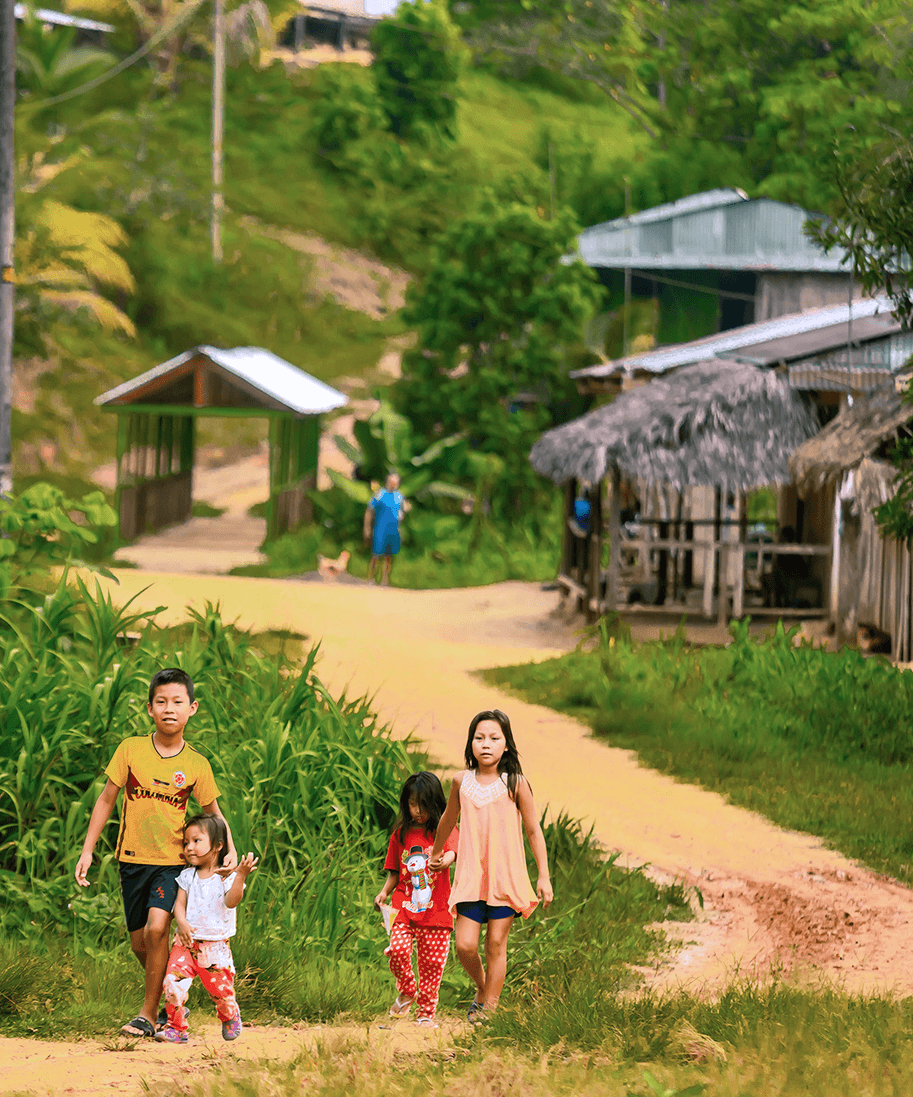
READ THE CASE STUDY & VIEW THE FILMS
LEARN MORE ABOUT THIS PROJECT
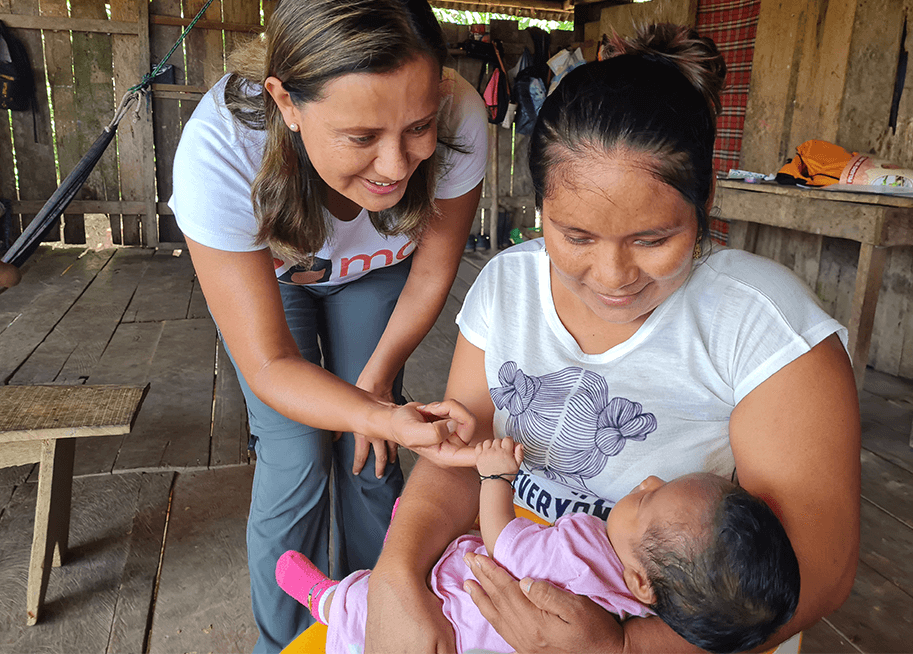
READ THE LATEST PROJECT PUBLICATIONS
Title: Effect of the Mamás del Río programme on essential newborn care: a three-year before-and-after outcome evaluation of a community-based, maternal and neonatal health intervention in the Peruvian Amazon
Authors: Blas, M., Reinders, S., Alva, A. et al.
Journal: The Lancet Regional Health – America
Year: 2023
Title: Prevalence of essential newborn care in home and facility births in the Peruvian Amazon: analysis of census data from programme evaluation in three remote districts of the Loreto region
Authors: Reinders, S., Blas, M., Neuman, M. et al.
Journal: The Lancet Regional Health – America
Year: 2023
Title: Home birth preference, childbirth, and newborn care practices in rural Peruvian Amazon
Authors: Del Mastro N. I, Tejada-Llacsa PJ, Reinders S, et al.
Journal: PLOS ONE
Year: 2021
